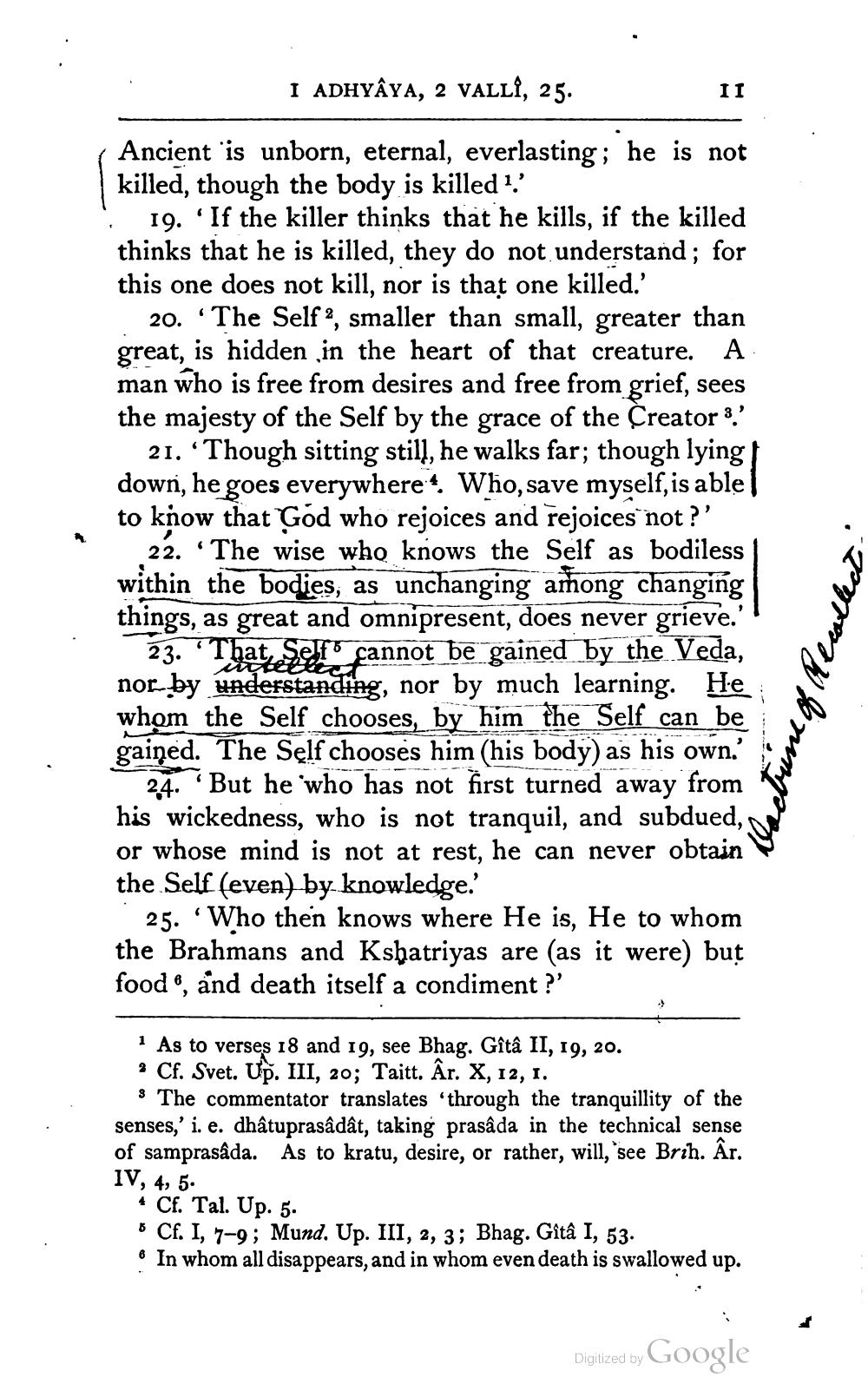________________
I ADHYAYA, 2 VALLİ, 25.
II
Ancient is unborn, eternal, everlasting; he is not killed, though the body is killed 1.'
19. 'If the killer thinks that he kills, if the killed thinks that he is killed, they do not understand; for this one does not kill, nor is that one killed.'
20. “The Self?, smaller than small, greater than great, is hidden in the heart of that creature. A man who is free from desires and free from grief, sees the majesty of the Self by the grace of the Creator 3.'
21. 'Though sitting still, he walks far; though lying | down, he goes everywhere 4. Who, save myself, is able to know that God who rejoices and rejoices not?'
22. “The wise who knows the Self as bodiless within the bodies, as unchanging among changing things, as great and omnipresent, does never grieve.''
23. “That, Self cannot be gained by the Veda, nor by understanding, nor by much learning. He whom the Self chooses, by him the Self can be gained. The Self chooses him (his body) as his own.'
24. But he'who has not first turned away from his wickedness, who is not tranquil, and subdued, or whose mind is not at rest, he can never obtain the Self (even) by knowledge.'
25. Who then knows where He is, He to whom the Brahmans and Kshatriyas are (as it were) but food®, and death itself a condiment ?'
Wactune Mecal
As to verses 18 and 19, see Bhag. Gîtâ II, 19, 20. · Cf. Svet. Up. III, 20; Taitt. Âr. X, 12, 1.
The commentator translates through the tranquillity of the senses,' i. e. dhâtuprasâdât, taking prasâda in the technical sense of samprasada. As to kratu, desire, or rather, will, see Brih. Âr. IV, 4, 5.
4 Cf. Tal. Up. 5. 5 Cf. I, 7-9; Mund. Up. III, 2, 3; Bhag. Gitâ I, 53. & In whom all disappears, and in whom even death is swallowed up.
Digitized by
Digitized by Google




